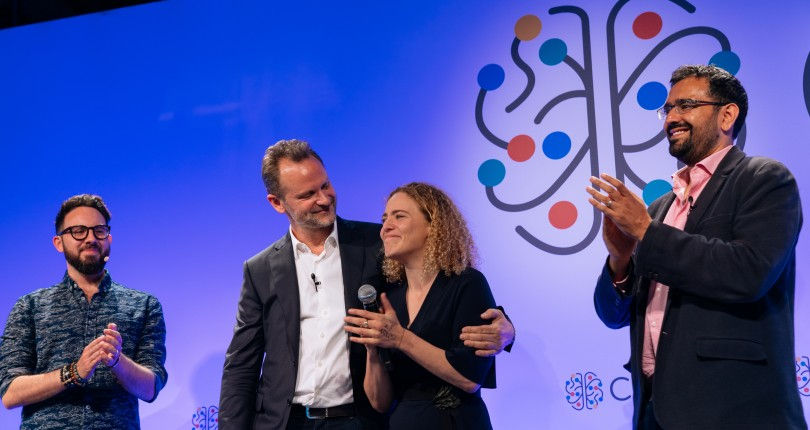Cogx18 – Artificial Intelligence. The Compassionate Heart of Technology.
- Sandy Khara
- Sep 6, 2019
- 3 min read
What a week it’s been – and it’s still only Wednesday. I spent Monday and Tuesday at CognitionX on London’s Tobacco Dock, and what an amazing event that was. More than five thousand attendees and over sixteen thousand viewers watching the live streaming feed. Everyone was buzzing, making new connections, re-connecting with old contacts, and massive credit has to go to Charlie Muirhead and Tabitha Goldstaub for putting the whole enterprise together and for the smooth operation throughout the two days. Big congratulations and thanks to Charlie and Tabitha for that.

But this was more than a glorious business networking opportunity; a gallery of world class speakers in this trail-blazing field and cutting-edge presentations, not only gave informed and valuable insights into the current state and future projections for AI, but often gave us food for thought. We are often drawn to the glamourous and entertaining applications of AI, from Amazon’s Alexa to driverless cars, robotics, artificial neural systems, and applications like the “Super Likeable” feature of Tinder, which uses AI technologies to make a curated list of potential contacts for users based on the characteristics of contacts already liked. And this is all well and good and we’ll reap the benefits of research and developments in these areas. But compassion is driving the development of numerous AI applications, and this compassionate function of AI implementation, giving technology an identifiably human characteristic is likely to see growing masses of people cautiously dropping their suspicion of AI and learning to embrace this frontier-technology.
Emotion AI could bring a degree of empathy to the way we communicate with our electronic devices, reacting supportively to our moods. There’s currently evidence suggesting that younger generations are losing the ability to emphasise because most of their interaction happens with digital interfaces from which human emotion is currently missing. Implementation of empathetic AI with next generation digital interfaces may be a way of regaining that recognition of the value of emotion, a human quality that we may be in danger of losing, and this alone would have benefits for human societies right down the line.
In Health Care, applications using AI may be able to monitor our mental state and researchers are already investigating the potential for Emotion AI to play a role in the early diagnosis of disorders such as Parkinson’s and coronary artery disease, suicide prevention and even autism.
But coming back to CogX, it was heart-warming to hear of research and development involving AI that could be used to help us understand and alleviate some of the greatest problems we face as a society. One issue in particular grabbed my attention and that was the suggestion that work was already under way to include AI in the way we analyse and can then implement solutions to the problem of homelessness, a cause dear to my heart and an issue that we as wealthy nations ought to be able to address. It was wonderful to hear how AI was being developed to help speed up the solution to this sad problem affecting increasing numbers of especially young people.
I suppose I could go on but the point is made. We are fast approaching a time when mass suspicion of AI will be softened into a welcome acceptance of how AI can benefit us all at the individual, community and society levels. AI is bringing human qualities to the digital age onto all platforms and interfaces, and this points to a brighter more positive future for us all.
Events like CogX help to bring out into the wider public consciousness just what is happening in this field of research, development and implementation, and once again, thanks to Charlie Muirhead and Tabitha Goldstaub for the great work they did in putting CogX together and allowing us all a glimpse at the positive and inclusive shape of things to come.
Sandy Khara
Managing Director, Talent International





Comments